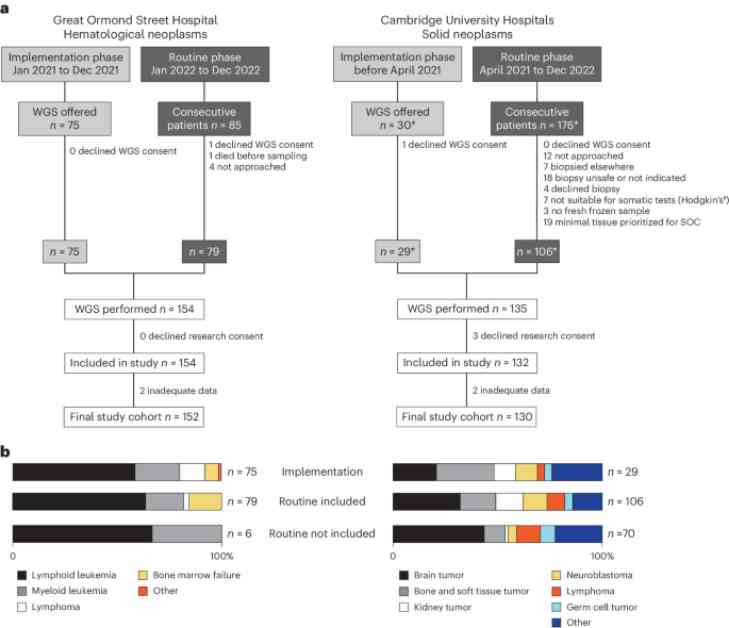Whole-genome sequencing (WGS) has emerged as a valuable tool in the field of pediatric oncology, offering comprehensive insights into the genetic underpinnings of childhood cancers. Recent studies have highlighted the clinical benefits of WGS in guiding patient management, particularly in cases where standard-of-care molecular testing may fall short.
One of the key advantages of WGS is its ability to provide a holistic view of all classes of genetic variants across the entire genome, enabling clinicians to uncover rare or novel mutations that may impact diagnosis, prognosis, and treatment outcomes. By incorporating WGS into routine clinical practice, healthcare providers can enhance their ability to tailor personalized treatment strategies for children with suspected cancer.
A recent observational study conducted in two English tertiary childhood cancer units, Great Ormond Street Hospital (GOSH) and Cambridge University Hospitals (CUH), demonstrated the real-world impact of routine WGS on clinical practice. By offering WGS to consecutive children with leukemia and solid tumors, the study found that WGS provided valuable diagnostic, prognostic, and therapeutic information in a significant proportion of cases.
In addition to aiding in the diagnosis of challenging cases, WGS revealed novel genetic features, such as disease-defining mutations and rare gene fusions, that were previously unknown. These unique findings not only expanded our understanding of childhood cancer genomics but also opened up new avenues for further research and targeted therapies.
Furthermore, the study identified instances where WGS led to practice-changing management decisions, particularly in cases where standard molecular assays may have missed critical findings. By uncovering germline predispositions, therapeutic targets, and disease-specific mutations, WGS played a crucial role in optimizing treatment plans and improving patient outcomes.
Overall, the study underscored the value of integrating WGS into pediatric oncology practice, highlighting its potential to revolutionize the diagnosis and treatment of childhood cancers. As genomic sequencing technologies continue to evolve and become more accessible, the routine use of WGS in clinical settings holds great promise for advancing precision medicine and improving the care of children with suspected cancer.
